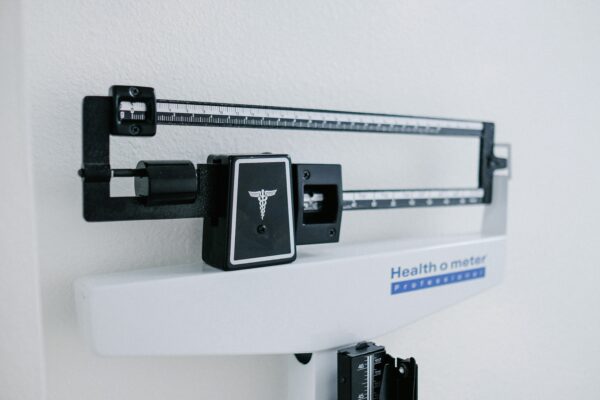Table of Contents:
- Provider Signatures as Audit Targets
- MACs’ Positions on Signature Requirements
- Legal Perspective on Medicare Signature Requirements
- Material Impact and Risk Management
As first published on RACMonitor on January 23, 2020As a regulatory and compliance officer, I often have the privilege of working with some of the best and most respected attorneys in the industry and today is no exception. Attorney David Glaser and I have known each other for better than a decade, both professionally and personally so, when an opportunity arose to co-author a paper together, it got me very amped up. Yeah, I know writing about compliance and legal issues is not exactly driving a race car around a track at 200 mph but, in its own quirky way, health care compliance and health law is sort of like a race – a race to see who can figure out all of the changes the fastest to avoid the prize, which in this case is overpayment demand(s) and/or debarment from participation with the payers.
During my Monday Monitor segment on January 20, 2020, I was talking about a big audit issue with federal, state and commercial payers. At the conclusion of the segment, David sent me a note to say something to the effect of, and I am paraphrasing here, “I am sure you know this but there are big debates within Medicare regarding a physician requirement to sign their note vs. state programs such as Medicaid and/or commercial payers that have very definitive rules.” Obviously, David is correct in his position regarding CMS (Medicare) as a whole but, as you will see in this article, there are some clear guidelines from the Medicare Administrative Carriers (MACs) on their take regarding provider signatures.
Provider Signatures as Audit Targets
There is no doubt that provider signatures are huge audit targets at the state level and at commercial payors. In recent months, Medicaid and United Health, to name just two, have taken an aggressive stance with regard to provider signatures being applied within a reasonable period of time. These audits have led to some significant claw-backs by the payors. Medicare however, is vaguer (found in Chapter 12 of the Manual is the following statement, “The service should be documented during, or as soon as practicable after it is provided in order to maintain an accurate medical record.”) with their guidance as an agency and I will leave this to David to address and provide guidance on a bit later in the article.
In a recent case I worked on in the state of Kentucky, the provider indicated they had never heard of nor through any of their research found anything that pointed to a signature requirement. However, Kentucky’s Medicaid rule regarding authentication of medical records and timing requirements is found in 907 Kentucky Administrative Regulations (KAR) 1:102 §2(4)(b)2 which states: “The individual who provided the service shall date and sign the health record within seventy-two (72) hours from the date that the individual provided the service.” Kentucky implemented this rule effective on July 6, 2015! This resulted in a $330,000 refund demand by the state. Fortunately, we were able to negotiate a favorable outcome for the provider avoiding the repayment of the full amount but even at a 5-figure settlement, it is still impactful!
In another case I worked on in the State of Alaska, the provider again indicated their research revealed nothing in the way of signature requirements. However, Alaska has what is referred to as a 72 Hour Contemporaneous Documentation rule and in their FAQ, the very first question posed is:
Q1 Please clarify the 72-hour requirement for documentation of services; is this a straight 72-hours or is it 72 business hours.
Q1A – The 72-hour requirement applies to the initial documentation of services. The regulation states 72-hours from the end date of service. This is a straight 72-hours from the end of date of service.
-
- An example is the date of service is January 20, 2018, the 72-hour clock starts at 12:00 am January 21, 2020 and is to be documented by 11:59 pm January 23, 2020. The 72-hour requirement does not allow an extension for weekends and holidays.
This resulted in a demand for $1.5 million in refunds. Again, through negotiations, we were able to significantly reduce the overpayment demand because it was based on a technical issue rather than one tied to reasonableness and/or “Medical Necessity.” But make no mistake, these are not easy negotiations because there is published guidance and you either complied or you didn’t. Arguing based on the merits of a technical deficiency is like arguing with a police officer that you were going so fast you didn’t see the 55-mph speed limit sign, so even though you were doing 70 it’s not your fault. That really isn’t an argument.
MACs’ Positions on Signature Requirements
Now, as I stated at the beginning of this article, several of the MACs around the country have their own take on provider signature requirements outside of what Medicare says or doesn’t say clearly.
Below is a breakdown by MAC of their position:
- Novitas – In their published FAQ, question 3 states: “Q3. After a service has been rendered, what amount of time is acceptable to Medicare for the doctor to sign the notes?”
- “In most cases, Novitas expects that the notes are signed at the time services are rendered. Further delays may require an explanation. See CMS Internet Only Manual (IOM), Publication 100-08, Medicare Program Integrity Manual, Section 3.3.2.5”
- In this case above, Novitas is vague in their direction but they have set an argument up in the event they want to try and push the narrative of “Hey, we said we expect that the notes will be signed at the time services are rendered.”
- Wisconsin Physician Services (WPS) states, “A reasonable expectation would be no more than a couple of days away from the service itself.”
- Here again we see that the carrier is not committing to a specific number of days although one could argue that a “Couple” equals two (2).
- Noridian states that they expect, “In most cases the notes would be signed at the time services are rendered.”
- Here again Noridian is making a similar statement to Novitas in that they expect it to be signed at the time of the service.
- Palmetto is a little more direct stating, “Providers should not add a late signature to the medical record, (beyond the short delay that occurs during the transcription process).” It is understood that there are circumstances, like waiting for transcription to be complete that might preclude signing the record at the time of service. In general, it is best to sign the record at the time of service, if not within a day or two at the latest.
- You may not add late signatures to orders or medical records (beyond the short delay that occurs during the transcription process). MLN Fact Sheet – Complying with Medicare Signatures – ICN 905364 May 2018
- FCSO memo (You can click this link to read the full memo) – “Medicare expects the documentation to be generated at the time of service or shortly thereafter. Delayed entries within a reasonable time frame (24 to 48 hours) are acceptable for purposes of clarification, error correction, the addition of information not initially available, and if certain unusual circumstances prevented the generation of the note at the time of service.”
- First Coast Service Options is the most specific of the MACs with regard to definitive timing (24 to 48 hours).
- “In most cases, Novitas expects that the notes are signed at the time services are rendered. Further delays may require an explanation. See CMS Internet Only Manual (IOM), Publication 100-08, Medicare Program Integrity Manual, Section 3.3.2.5”
Legal Perspective on Medicare Signature Requirements
Sean is certainly correct that it is best to have a medical professional sign a chart. As he notes, in some states a statute or regulation may require the signature. It’s also true that many Medicare contractors claim a signature is a requirement. However, I would strongly discourage anyone from refunding money for a service merely because the signature was missing from a medical record entry. Similarly, if an audit denies a claim for a missing or defective signature, you should appeal.
Let’s focus on the Medicare program. There is no statute or regulation that requires physician signatures. At times, CMS has published guidance indicating that no signature is required. For example, when the evaluation and management documentation guidelines were issued in 1995, CMS (then HCFA) issued the following statement as part of a Q&A:
“11. Is the physician’s signature required on each page of the documentation?
No. The guidelines only state that the identity of the observer be legibly recorded.”
I want to emphasize that the Documentation Guidelines themselves are, as the name indicates, guidelines, and not a requirement.
The fact that a signature is not required by Medicare is confirmed by the Program Integrity Manual, CMS Pub 100-08 §3.3.2.4, Signature Requirements:
If the signature is missing from an order, MACs and CERT shall disregard the order during the review of the claim (e.g., the reviewer will proceed as if the order was not received). *
If the signature is missing from any other medical documentation (other than an order), MACs and CERT shall accept a signature attestation from the author of the medical record entry.
(* Note that this is wrong. In fact, in many cases Medicare does not even require that an order be in writing, let alone that it be signed. See 62 Fed. Reg. 59048, 59072)
Given the guidance from Medicare confirming that a signature is unnecessary, contractors lack the authority to impose a signature requirement on physicians. Many years ago, I was working with an oncology practice in New Mexico facing a $3 million dollar overpayment assessment. The contractor asserted that because chemotherapy records were missing the physician’s signature, there was no proof that the physician was present in the suite. We appealed, making the obvious argument that a physician’s signature would not prove the physician was present. A physician can sign a chart at any time. In fact, I would assert the addition of a signature proves essentially nothing. It doesn’t prove the physician provided the service, nor does it prove that the physician read the note. At most, it proves that the physician is literate and was once near that piece of paper.
Material Impact and Risk Management
Under the principles articulated by the Supreme Court in the Escobar case, courts are expected to determine whether a requirement has a material impact on whether the Medicare program would pay for a claim. The Manual language cited above confirms that a signature is not material to program payment. That is particularly true in situations where other evidence clearly demonstrates the author of a note. For example, in many EHRs an electronic trail records the author. In other cases, the author of the note records the identity of the person dictating the note. If the identity of the author of a note is clear, the signature adds literally no additional information.
The bottom line is that including a signature to minimize audit risk is a sound risk management strategy. Sean’s advice is prudent. For facilities subject to Medicare conditions of participation, those conditions often require physician signatures. For example, both hospitals and ambulatory surgical centers are expected to obtain physician signatures on records. However, the Medicare program differentiates between conditions of participation and conditions of payment. The absence of a physician’s signature should not result in denial of a Medicare claim. When contractors claim that it does, we need to point them to the Program Integrity Manual, and correct the error of their ways!
Sean M. Weiss is a Partner and serves as VP/Chief Compliance Officer for DoctorsManagement, LLC based in Knoxville, TN. DoctorsManagement, LLC services more than 20,000 clients nation-wide and has been in existence since 1956. Weiss serves as an Investigator and expert witness in Federal and State cases as well as an expert or lead in Administrative Law Judge Hearings. During his 25-year career, Weiss has engaged in more than 200 cases working with law firms and health systems across the country. Weiss serves as a third-party compliance and regulatory officer for more than a dozen health care organizations across the country of varying sizes. For more information on Sean M. Weiss or DoctorsManagement, LLC visit us online at www.doctorsmanagement.com or contact us directly at 800.635.4040. You can also follow Sean on his biweekly Blog on LinkedIn (Sean M. Weiss “The Compliance Guy”) or at www.thecomplianceguyblog.com
What to do next…
- If you need help with an audit appeal or regulatory compliance concern, contact us at (800) 635-4040 or via email at [email protected].
- Read more about our: Total Compliance Solution
Why do thousands of providers trust DoctorsManagement to help improve their compliance programs and the health of their business?
Experienced compliance professionals. Our compliance services are structured by a chief compliance officer and supported by a team that includes physicians, attorneys and a team of experienced auditors. The team has many decades of combined experience helping protect the interests of physicians and the organizations they serve.
Quality of coders and auditors. Our US-based auditors receive ongoing training and support from our education division, NAMAS (National Alliance of Medical Auditing Specialists). All team members possess over 15 years of experience and hold both the Certified Professional Coder (CPC®) as well as the Certified Professional Medical Auditor (CPMA®) credentials.
Synergy – DoctorsManagement is a full-service healthcare consultancy firm. The many departments within our firm work together to help clients rise above the complexities faced by today’s healthcare professionals. As a result, you receive quality solutions from a team of individuals who are current on every aspect of the business of medicine.


























